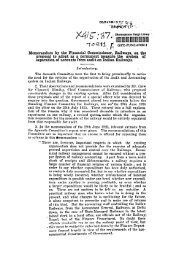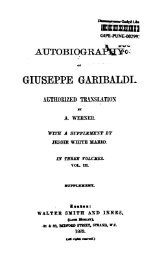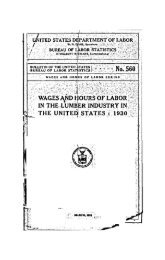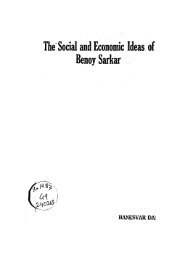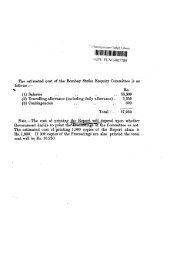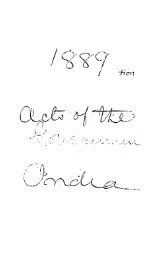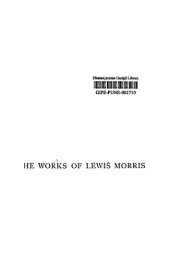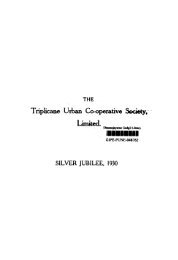You also want an ePaper? Increase the reach of your titles
YUMPU automatically turns print PDFs into web optimized ePapers that Google loves.
October 9th, 1925<br />
INDIAN OPINION<br />
bas the power to order the renewal of the licence 01'<br />
remit the ~ase to the local authority or the bo.lrIl.<br />
If an application has been refused by a 10C'al antbor·<br />
ity or board it may not be renewed for tlix<br />
months.-TItJ' SlUT.<br />
The Marks Of Christianity<br />
Bishop Fisher's Sermon<br />
f<br />
At the Wesleyan Church, Greyville, on Sunday<br />
Sept. 1a Bishop Fisher of CAlcutta delivered the<br />
following sermon, taking his text from St. Paul's<br />
epistle to the Galatians Chapter G, verse 17: "From<br />
henceforth let no man trouble me for I bear in my<br />
body the marks of the Lord Jesus."<br />
This is the response St. Paul made to certdin<br />
accnsations, and it is similar to the response of Jesus<br />
to the doubting among the disciples, "hen he saiJ<br />
• Behold my hands and my fet't.' He suddenl;<br />
appeared before his disciples and tht'y thought hJm<br />
dead and were afraid. They thought they had seen<br />
a spirit, but he proved to them tha.t he was living in<br />
~he flesh, antI the proof was an experimental proof:<br />
Behold my hands and my feet. '<br />
St. Paul was driven by many accnsers in the<br />
Roman Empire, and particularly in those sectIOns<br />
called Asia. He grew weary of these constant<br />
accusations--' You are not like unto us; you do not<br />
follow our customs; you are not one of us you<br />
preach in a way that we cannot accept: you aI~ continually<br />
holding up ideals we will not follow, and<br />
you speak ~ith no authority.' But St. Paul remembered<br />
that he had been beaten with many<br />
strokes and had been in prison and had earned his<br />
right to be a follower of Jesus Christ, and he knew<br />
his friends, by just touching hIS back and shoulder<br />
would feel the ridges of flesh that had been mad~<br />
by the lash of the whip and therefore he said 'I<br />
care nothing for your authority or about your' reception<br />
of me. My justificatIOn comes from someone<br />
elst', it comes from Jesus Christ. I am crucified<br />
with Christ. I live, yet not I, it is Christ that liveth<br />
in me. Bother me no more and bl'mg me into court<br />
no more, speak to me in the street in dlsPaI'agin~<br />
terms no more. You cannot irritate me because I<br />
bear in my body the marks of my Lord. '<br />
Now it is a strange thing that in thIS book of Galatians<br />
we find St. Paul's spiritual decla.!'ation of independence,<br />
and the very people to whom he wrote<br />
it came later to believe in the very gospel he<br />
preached.<br />
I sometimes wonder how you and I can have it<br />
known and understood that we are disciples of the<br />
Lord Jesus. What is there about me, if someone<br />
challenges me in the streets of Durban to show that<br />
I am a Christian? Can I turn and say: Henceforth<br />
trouble me no more, for I bt'ar in my bodX the marks<br />
of the Lord Jesus? Is there any way by which a<br />
man in the street or in the shop or the mill or the<br />
office or in any of the social walks of life, will know<br />
I am a follower of Jesus Christ? In what way am<br />
I marked? I have come from a country across the<br />
Indian ocean where 320 millions of IndIans belong<br />
to Bome particular faith. He may be a Hindu he<br />
I<br />
'<br />
way be a Mahommedan, he may be a Parsee, or he<br />
may be a Sikh. No matter what hIS religion is,<br />
there is some way by which you can distiuguish the<br />
group t() which he belongs. The Hindu has his<br />
particular characteristic, the Brahman wears a string<br />
upon his shoulder, just an or,linary cotton cord, and<br />
when you see that you know that ht' belongs to the<br />
sect called Brahman'. The man in the strt'et nnderstands<br />
that he i& a Brahman, and the Brahman does<br />
not feat bein. 10 marJt,d, Or If rou turn to Ute<br />
,,"'I,"/llJ. w'61lltfll prill'4 ~tlo flUell abOtlt lill O.e1'<br />
the country teachinl; the children in tho marvellous<br />
sybtelll \~ here they l~arn the classics and the poetry<br />
that Ind1.1 has taught her children. You will find<br />
him always dh,tmguishable, and even the man who<br />
has renonnced evt'rything, who wears ashes, is<br />
known by the mark of the ashes. He wants the<br />
world to kllow. Agam the Mahomedan wears a red<br />
fez so that the world may know he belongs to the<br />
Mahomedan religion, and he does not care who<br />
knows it. Or he may be a SIkh from the nmrk and<br />
have a huge turban and he will so wrap it that no<br />
one evel' mistakes it. No one else will wrap it in<br />
t~t particular way and YOll will always distinguish<br />
hIm. 0 .. the Parsee will wear a shining cone-shaped<br />
hat so that citizens of Bombay or Western India<br />
may understand he belongs to that particular group.<br />
Even the greetings in the VIllage'! of India, I have<br />
learnt, baving something to do with tribal and roligion&<br />
connectIon. Who is itt Is the expression<br />
~hen you meet someone and the response may be,<br />
I am a Hmdoo of a particular sect, I am a Chrisban,<br />
I am a Mahomedan, I am this or that.' He<br />
belongs to something. He has lost hIS identIty, his<br />
personal identIty in the thing to whICh he belon$B.<br />
When we say' Who is it" We reply with our personat<br />
name. I do not say I am a Methodist, I do not<br />
~y, I ,am a ChrIstIan, I give my name. I retain my<br />
mdlvldual self and sometimes myself is bigger than<br />
my religion, and bigger than my society and bigger<br />
than my ideals. I make my ideals conform to me instead<br />
of conforming my own hfe to my ideals. I do not<br />
know just how I can make everybody understand<br />
that I am a Christian. We have no mark on the<br />
forehead, we have no distinctive dress. We have no<br />
distinctive salutatIOn. There IS no particular way<br />
ostensibly physical, by which a man can know I a~<br />
a ChristIan. If I walked along West Street I might<br />
pass 500 people in a few moments, yet I cannot tell<br />
which man is a Christian and which man IS not.<br />
OUI' social cUAtoms are all so much alike, that it is<br />
utterly impossible to t('ll who is a Christian. If I<br />
COUld. go aho~t all the various churches on a Sunday<br />
mornmg I mIght find out who belongs to a particular<br />
church, but so far as any actions during the week<br />
are concerned, it woulel be utterly impossible to dis<br />
~lDguish me from my friend across the way. How<br />
IS the worM to know that I am a Christian? Have<br />
rou ever thought of it or studIed it, or prayed about<br />
It on your knees, the responsibIlity of compelling<br />
the world to know through our lives the gospel of<br />
Jesns Christ. There is no mark. I remember at<br />
th; clOSE: of an address one night at Benares, a young<br />
Hmdu came rushing tt) the front of. the building and<br />
took hold of my fingers and said, 'Let me see your<br />
hands.' I showed him first the palms and then the<br />
other side, and he dropped them suddenly and said<br />
'There is no cross on them, how am I to know you ar~<br />
a Chl'istian. I see nothing about you to distir.guish<br />
you from other men: and it was borne in upon me<br />
that there were millions of people interested to<br />
know whether I bore about in my body the marks<br />
of my Lord.<br />
(TIJ /)/1 CIJnlznuld.)<br />
~ ~~~ ~1~ ~~ltn~tl~<br />
~l~ ~q ~li GtI~2J{I::t CIi\!?,llct~l'l1.l vtl~ ~, dl.<br />
\\9 ~5~1'l~ 'I.e:~'t .ur{l11~-tl ~l



